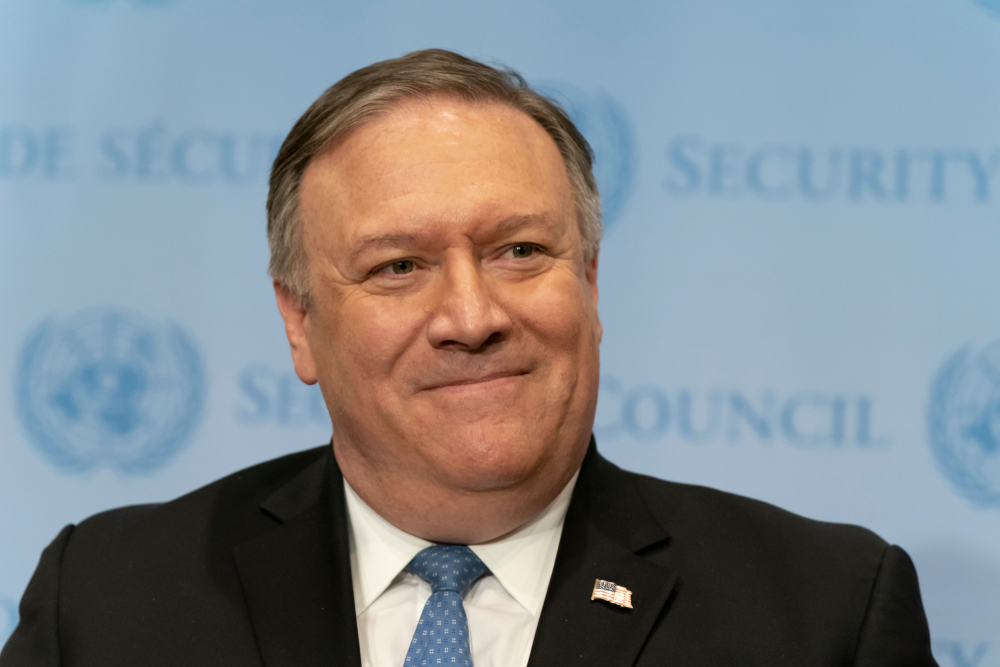by Laila Ujayli and Lizamaria Arias
Last week, circumventing objections from legislators on both sides of the aisle, Donald Trump declared an emergency to expedite more than eight billion dollars worth of arms sales to Saudi Arabia, the United Arab Emirates, and other countries. In doing so, Trump continues to place the interests of the Saudi government and arms contractors over the will of Congress, and in the process undermines the security of peoples in the Middle East, Saudis included.
Lawmakers had previously delayed arms sales to the Saudi and Emirati monarchies on account of their coalition’s devastating military intervention in Yemen, which has resulted in the world’s largest humanitarian crisis and U.S. complicity in war crimes. The Saudi government in particular has drawn Congressional ire for its brutal murder of Washington Post contributor, and U.S. resident, Jamal Khashoggi. To complete the sale and bypass Congressional holds, the Trump administration was forced to utilize the emergency provision of the 1976 Arms Export Control Act (AECA) which allows the president to evade the mandatory 30-day congressional notification period for arms sales as long as he presents the security justification to Congress.
In yet another step in the administration’s march to war with Iran, Secretary of State Mike Pompeo justified the administration’s decision by arguing that the arms sales would somehow “enhance Middle East stability” by helping Saudi Arabia and others to “counter” Iran. Unsurprisingly, his argument falls flat, particularly as the Trump administration careens towards what would be a regionally catastrophic war. Moreover, if stability in the Middle East is the goal, it’s absurd to assume that a country that has fueled a destabilizing war in Yemen can be its broker.
The Trump administration’s work to prolong U.S. involvement in Yemen’s war and its sanctions campaign against Iran have been devastating to both Yemenis and Iranians. It should also go without saying that a war with Iran would not only undermine American interests, but also cause people in the region immeasurably more harm. And as panelists reminded attendees during an event in Washington DC last week on the Saudi government’s targeting of women’s rights activists, the Trump administration’s unwavering support of the Saudi government is not enhancing the security of Saudi citizens either.
One of the activists targeted by the Saudi government is Loujain al-Hathloul, a tireless advocate for an end to male guardianship and women’s right to drive. At the event, Loujain’s siblings, Walid and Lina al-Hathloul, spoke about their sister’s work and her subsequent imprisonment. Loujain was arrested before the announcement of the end of the female driving ban and has remained in government detention since. During a prison visit last December, Loujain disclosed to her family that she had been repeatedly tortured. And today, despite efforts to go through official channels for information, her siblings have no clear sense of her situation or wellbeing.
Meanwhile, Trump has routinely overlooked these gross violations of human rights and failed to hold Saudi Arabia to account. Consequently, both lawmakers and the American public at large must question the U.S. role in emboldening the Saudi government’s brutal policies. As journalist Safa al-Ahmad pointed out to the event’s audience, while the U.S. cannot force change in Saudi Arabia, it can curb its support for the monarchy and send a message that human rights abuses will not go unpunished. For the sake of true “stability” in the region, the United States must stop supporting dictators.
Undeniably, the U.S.’ history with human rights makes us a poor champion—and our domestic record proves we have a ways to go before the U.S. can become any sort of authority on the subject. But the least the administration can do is stop enabling those who violate the rights of Saudi citizens and bomb Yemeni civilians. The Trump administration must leverage the United States’ close relationship with the Saudi government to the benefit of human rights, not just to line the pockets of defense contractors.
By continuing to sell arms to Saudi Arabia, the United States sends a clear signal that the Saudi government is free to continue its brutal torture and imprisonment of advocates like Lujain al-Hathloul, as well as its indiscriminate bombardment of civilians in Yemen, without incurring meaningful consequences. If Congress wants to disrupt this message, lawmakers on both sides of the aisle must push for legislation to “block the transfer, sale, or authorization for license of bombs and other offensive weapons” to Saudi Arabia and assert loudly that—despite the Trump administration’s best efforts—the blank check the U.S. has given to Saudi Arabia is approaching its expiration.
Lizamaria Arias is a Fall 2018 Herbert Scoville Jr. Peace Fellow focusing on the effects of emerging technologies on crisis stability. Follow her on twitter @lizamaria_arias.






Are people seriously advocating that there should not be regime change in Iran because the Saudis have got awful human rights?
@ Laila Ujayli
You rightly criticise a backward and utterly heartless subservient Saudi tribe for its “brutal torture ad imprisonment of” a group Saudi female advocates, whereas in our own ‘independent’, ‘civilised’, ‘Islamic’ country a female lawyer simply for expressing her views in court is sentenced to 33 years! How long is a woman’s life to spend 33 years of it in prison just because of her outlook!? Would ‘you’ accept a 33 years sentence for expressing your views?
I condemn your hypocrisy and double standard.
You are not alone; those respectable Shia devotees who rightly condemn the Saudi’s brutal fanaticism, why don’t they never empathise with the Iranians advocates of a just society, if they truly advocate Imam Ali’s conception of justice? If the Imam Ali (peace be upon him) were to appear in Iran today he would be the first to be publically slandered, tortured and imprisoned for his outrageous condemnation of our shocking hypocrisy, official corruption and denial. I hate to wash our dirty laundry in public, but how long can we afford to watch our own corrupt, irrational and cruel judicial system destroying the very principles based on which the oppressed Iranian nation rose up in 1978; how long should we suffer and accept hunger, discrimination and corruption in the name of God, the Revolution and national security? Can’t you see we are suffering? Can’t you!?
That is why I condemn your self-censorship and double standard; that is why such articles fail to connect with the Iranians and eventually lose their merits.
Khosrow
I think you meant the 38-year sentence?
The 38-year sentence is not true. It was arrived at by adding all the sentences of that lawyer, in Iran, under Iranian code, the multiple sentences are concurrent. In practice, her sentence runs for seven and a half years. Still excessive and likely unjust.
Between 1882 to 1968, 4743 were lynched in the United States yet no one, inside or outside of US, advocated the overthrow of the Government of the United States or any of its states in which people had been lynched.
A few years ago, policemen in New York City raped a Blackman with a baton, a few years earlier the US Federal Government agents burnt 96 people, men women children, in Waco, with total impunity.
Please ask youself: “Why is that no one in Iran adheres to traffic laws?” And then: “How can such people be governed as though they were Norwegians?”
The US actions in the ME/NA are based on business and job creation and not religion or human rights! Frankly the US false claims of Religions and HR’s are all bullshit! The MIC runs this country and it has to manufacture and sell arms. The government, on the other hand, is subservient to the MIC because it makes the government look good by keeping a high level of employment! At one time the US was a major producer of goods and services post WWII but no longer. Nixon was elected and open the external doors after the disastrous Vietnam war was over and Reagan finished his intentions by exporting the major industrial base to the Far East as demanded by the international corporations. Trump is trying to reverse the trend with the tax incentives to the businesses and the tariffs goods but he’s miserably failing!
The government first job is to create divisions between countries so the MIC can sell more arms and keeping the employment up!
The government 2nd job is to protect resources of this planet for the corporations by utilizing its military.
Monty Ahwazi
US support for Israel is religious.
That is why they used the excuse of 9/11/2001 attacks on America to declare war on enemies of Israel.
Iraq was first, then Libya, then Syria, which failed with the help of Iran and Russia.
US could have made more money by selling nuclear reactors, diesel-electric locomotives, and airplanes to Iran, participated in oil and gas exploration in Iran, and invested in Iranian projects.
They preferred their own religious fantasies.